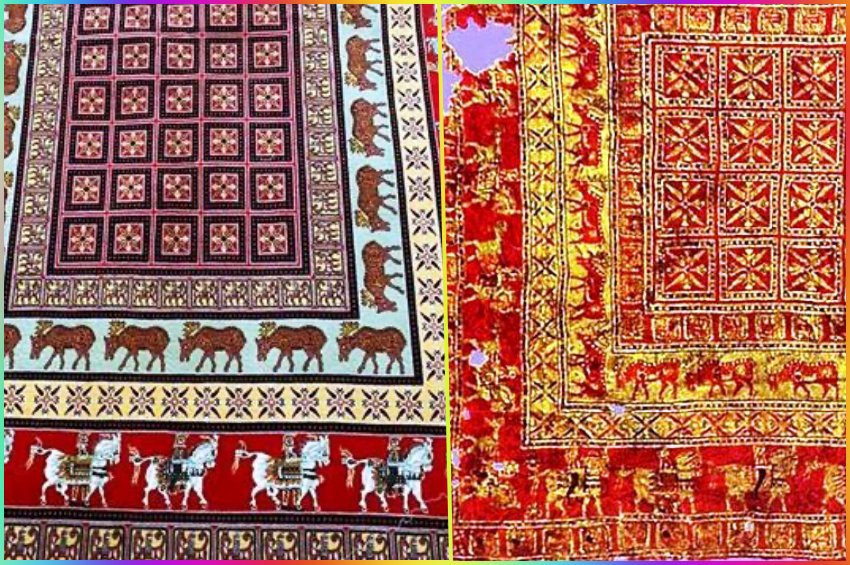Nestled in the icy reaches of Siberia’s Altai Mountains lies one of the most remarkable relics from ancient history: the Pazyryk Carpet. Discovered in 1949, this exquisite piece is not only the oldest nearly intact carpet ever found but also a testament to the advanced weaving techniques of the 5th century BC.

Unearthed from the grave of a Scythian nobleman in the Pazyryk Valley, the carpet’s discovery has provided a fascinating glimpse into the artistry and craftsmanship of the era. Radiocarbon dating has confirmed its creation around 400 BC, making it a time capsule of ancient textile artistry. The Pazyryk Carpet measures an impressive 9.2 feet (283 cm) in length and 6.5 feet (200 cm) in width, featuring a vibrant and intricate design that still captivates historians and art enthusiasts today.

The carpet’s central field is adorned with a deep red hue, setting the stage for an array of elaborate patterns. Within this rich background, deer images appear in the inner main trimming, while the outer border is decorated with dynamic scenes of men on horseback. The middle section of the carpet is filled with a series of geometric motifs, including X-shaped ornaments, stars, and cross patterns. These repetitive designs are not only visually stunning but also reflect a long-standing tradition in oriental carpet production that has influenced many subsequent textile designs.

What makes the Pazyryk Carpet particularly fascinating is its sophisticated weaving technique. Despite its age, the carpet’s craftsmanship displays a high level of skill and precision, suggesting a deep-rooted tradition of carpet making in ancient Scythian culture. The use of advanced techniques and intricate patterns reveals the complexity of textile arts long before the advent of modern technology.
This ancient masterpiece does more than just showcase the beauty of early weaving—it offers a tangible connection to the past, revealing the aesthetics, culture, and technological prowess of the Scythians. Each thread and pattern tells a story of an era long gone but vividly preserved through this remarkable artifact.
